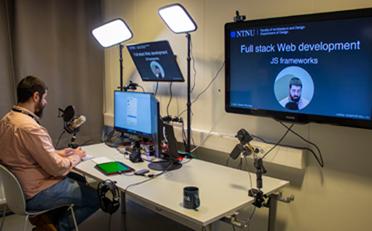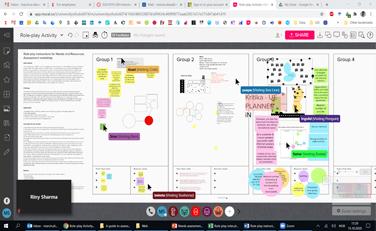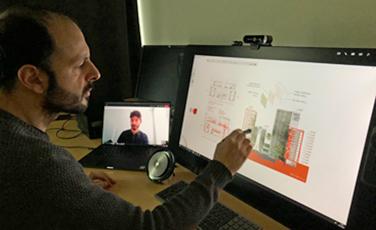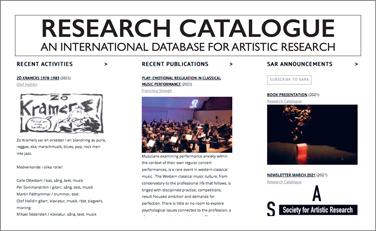Digitale undervisningsformer
Innovative digitale læringsmetoder ved AD
Live Recording Studio (Gjøvik)

Kontakt: Førsteamanuensis Carlos Vicient-Monllaó ved Institutt for design
About Live Recording Studio
About Live Recording Studio
The live recording studio is a versatile and flexible tool that makes it simple to record and create professional-looking videos.
At the same time, it is also a good companion for enhancing live video on streaming platform such as Zoom or Teams when delivering video lectures or attending virtual meetings.
With different layers and presets, the teacher can quickly start a new lecture and share the camera and the screen in one single video source, use a tablet to annotate the screen in real time or switch between different camera sources (desktop, whiteboard, doc cam).
It also eliminates the need of spending hours editing videos because the user of the platform decides what will be recorded in real time.
International Distributed Fieldwork

Kontakt: Vitenskapelig assistent Cinthia Stecchini ved Institutt for arkitektur og planlegging
About Distributed Fieldwork
About Distributed Fieldwork
The international master’s program in Urban Ecological Planning (UEP) starts with a fieldwork in the first semester: the whole class immerses together in a complex urban context to undertake project-based courses using participatory methods.
With the travel and fieldwork restrictions during the pandemics, this was not possible in fall 2020 – or at least not the travel. Students remained in their countries of residence, conducting the project in a place close to where they lived, while attending lectures and being supervised digitally by the teaching staff based in Norway. This resulted in simultaneous fieldworks taking place in 13 cities in 8 countries. To make it work, communication was key: learning platforms had to be well-organized and communication channels with staff needed to be clear and functional.
Zoom was the main platform used for lectures, which were mostly live but sometimes pre-recorded, and was combined with other digital resources – for example, the use of Mural to perform a role-playing activity.
Although each student had their own project, they were divided in groups to discuss their cases and write a theoretical paper and a project report together. Each group had one supervisor, with whom they met on Zoom, Teams or Blackboard once a week, and presentations of work progress took place every month with the whole class. These activities, together with the support received by the mentors (second year UEP students responsible for engaging the class in social activities and introduce them to life at NTNU and Trondheim), were efforts to produce a similar group experience as physical fieldworks. This was achieved to a high degree – but, in the end, students still longed to have the chance to do fieldwork together.
Nevertheless, feedback received from the reference group showed that students had a good experience with the distributed fieldworks, highlighting the importance of being able to communicate quickly with the staff and showing a strong preference towards live sessions rather than recorded ones, although having the lecture recordings available was also considered very positive.
Digital Guidance Studio

Kontakt: Førsteamanuensis Luca Finocchiaro ved Institutt for arkitektur og teknologi
About Digital Guidance Studio
About Digital Guidance Studio
The Digital Guidance Studio is built with the purpose of facilitating digital sketching in remote guidance activities.
The studio is a physical workstation enhancing communication between teachers and students spread throughout the world, by combining conventional video connection with the use of digital and analogue tools for sketching.
Thanks to the studio, teachers and professionals in dialogue, can provide feedback to students proposals, sketching on the project plans and sections as they would do using conventional tracing paper. This is possible thanks to the use of a WACOM Cintiq pro as hardware and the use of digital sketching software such as Autodesk Sketchbook. Students, teachers and professionals are generally connected through Teams or Zoom.
Research Catalogue

Kontakt: Førsteamanuensis Alexandra Murray-Leslie ved Kunstakademiet i Trondheim
About Research Catalogue
About Research Catalogue
The Research Catalogue (RC) is a non-commercial, collaboration and publishing platform for artistic research provided by the Society for Artistic Research.
The RC is free to use for artists and researchers. It serves also as a backbone for teaching purposes, student assessment, peer review workflows and research funding administration.
It strives to be an open space for experimentation and exchange. https://www.researchcatalogue.net/
